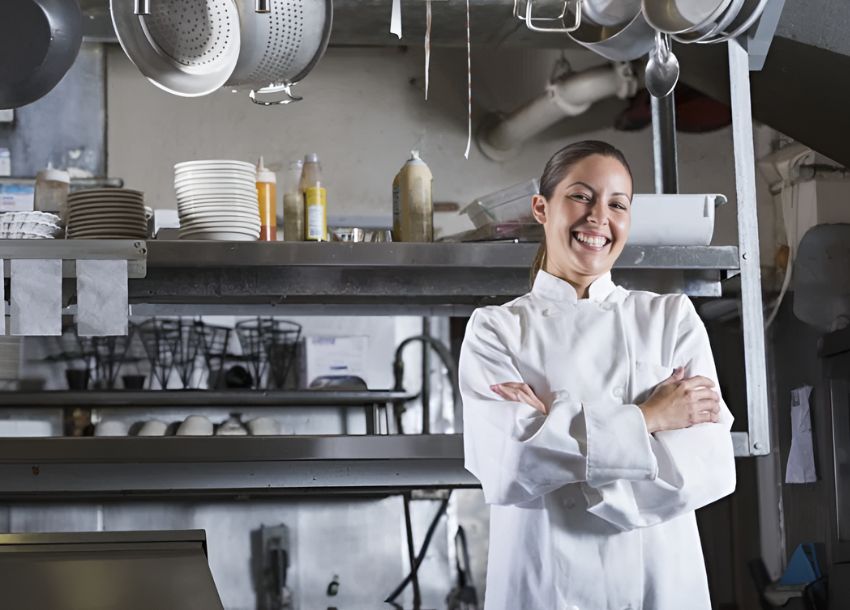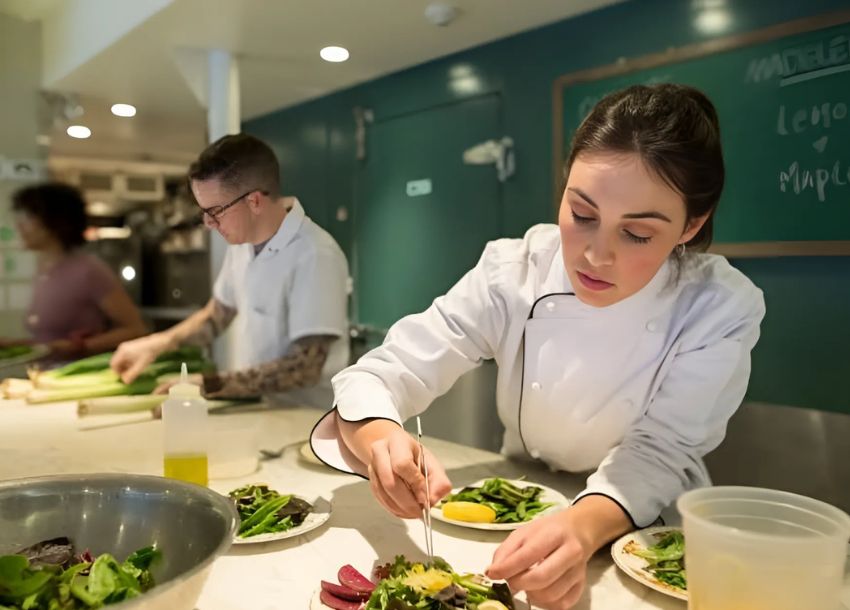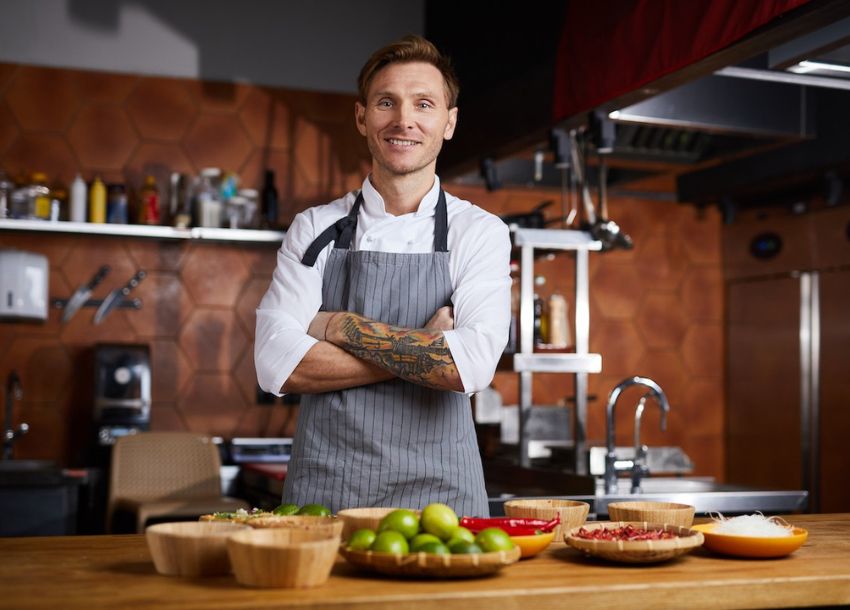Sous Chef Job Description: Duties, Skills & Career Path
- Career Options
- Aug 21
- Share post
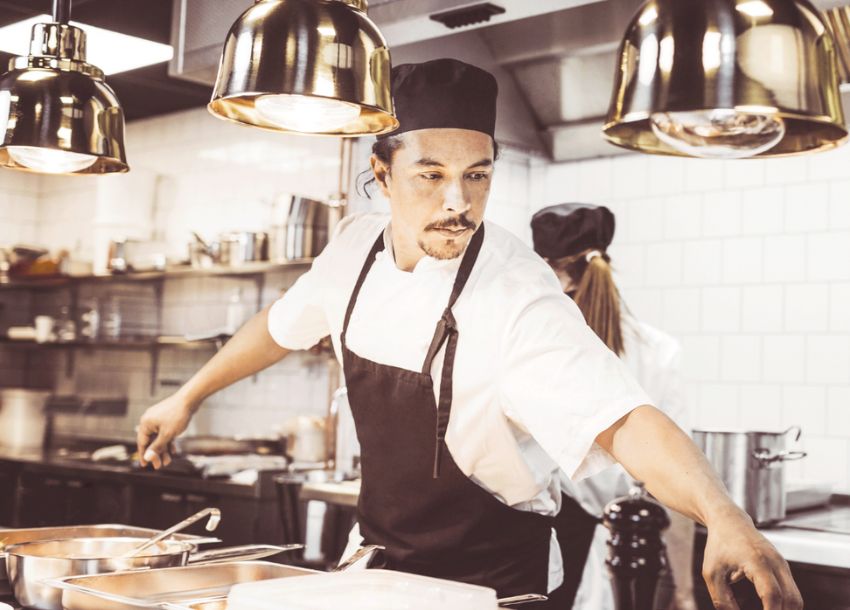
If you’re searching for a clear sous chef job description, or you’re a chef de partie ready to step up, this guide breaks it all down. A sous chef isn’t just second-in-command – it’s the role that shapes how a kitchen runs and the proving ground for anyone with ambitions of becoming a head chef or executive chef.
This guide explains what a sous chef actually does, what employers expect, and how this role sets you up for long-term career growth. More than that, it shows why the sous chef position is often the moment chefs realise they’re not just cooking anymore – they’re leading and managing.
What does a Sous Chef do?
A sous chef is second-in-command to the head chef. You’re the organiser, the motivator, the steady hand when service is on the brink. This isn’t just about knowing your station – it’s about knowing the whole kitchen.
Typical responsibilities include:
- Running the pass when the Head Chef’s off.
- Managing the brigade, rotas, and section support.
- Quality control, plating checks, and service flow.
- Training junior staff (CDPs, Commis, Apprentices).
- Handling supplier orders and inventory.
- Supporting menu development and specials.
In practice, that means you’ll often be the one who spots mistakes before they reach the pass, keeps communication smooth between front and back of house, and solves problems on the fly. You’re expected to step in wherever needed – whether it’s calming a stressed commis, reworking prep to cover a missing delivery, or jumping on grill when tickets are flying.
Skills that make a strong Sous Chef
Employers in the UK want more than just technical ability. Here’s what separates a solid sous chef from the rest:
Calm under pressure – Saturday night service can feel like controlled chaos. A sous who keeps their head will steady the team.
Communication – You’re the bridge between FOH and BOH. Clear calls, quick updates, and respect across the pass make all the difference.
Leadership – Mentoring juniors, delegating effectively, and resolving conflicts without drama.
Adaptability – You may start the night on garnish but end it on grill. Flexibility is essential.
Organisation – From managing stock to writing rotas, the admin side of this role is as important as cooking.
A great sous chef combines authority with approachability – commanding respect while still being someone the team can lean on.
Sous Chef job description and salary (UK)
According to Indeed UK, the average sous chef salary in 2025 is approximately £33,000, though top-tier roles in London or high-end establishments can exceed £40,000. Junior Sous roles tend to sit around £28,000–£30,000.
Outside of pay, perks can include staff meals, uniforms, structured training, and even opportunities to compete in culinary competitions or contribute to menu development.
Note:
Although the salaries listed here are taken from aggregated data, the reality is that many employers are paying considerably higher salaries in order to secure the best talent.
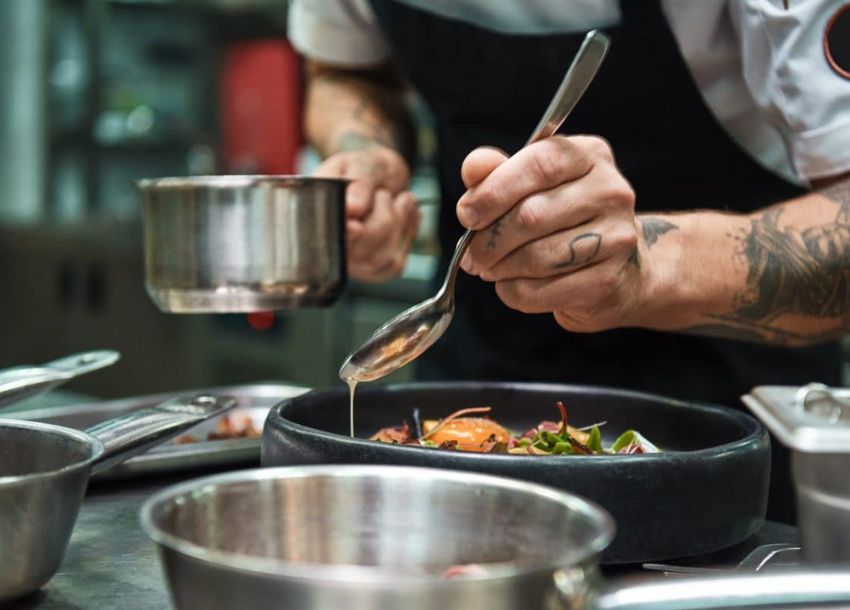
Career path: where it can lead
Head chefs, executive chefs, and even chef-owners were all sous chefs at one point. It’s the proving ground – where your leadership style is forged and your all-rounder status is solidified.
From here, paths include:
- Executive Sous Chef in larger hotels or groups.
- Head Chef roles, leading the kitchen outright.
- Multi-site Group Roles for chains, contract catering, or hotel groups.
- Hospitality Consultancy or training, for chefs who prefer developing others.
Progression looks different depending on the kitchen. In independents, sous chefs often step into head chef roles faster. In hotels or larger groups, you might climb more gradually, but gain exposure to bigger teams, banqueting, and diverse cuisines.
CV tips for aspiring Sous Chefs
- Highlight leadership moments – don’t just list dishes.
- Mention achievements: team retention, improved service time, reduced waste.
- Use verbs like led, trained, streamlined, improved.
- Tailor your CV to each job using the responsibilities listed above.
Final thoughts
Remember – employers want a sous chef who’s more than a strong cook – they want someone who can lead under fire.
–
FAQs
What’s the difference between a Sous and Junior Sous Chef?
A junior sous chef typically assists the sous chef, with less managerial responsibility and often focused on one section.
How can I move up to Sous Chef?
Demonstrate leadership in your current role – train juniors, support service flow, offer to run the pass.
Is a culinary qualification required?
Not always. Experience often trumps formal training, though NVQs or diplomas can help.
If you’re currently looking for your next sous chef job opportunity, check out: How to Write the Perfect Chef CV.
What should I expect in a Sous Chef interview?
Expect behavioural and technical questions – plus a trial shift. Bring examples of team leadership and problem-solving under pressure.
Comments
Add a comment
Leave a Reply · Cancel reply
You must be logged in to post a comment.

